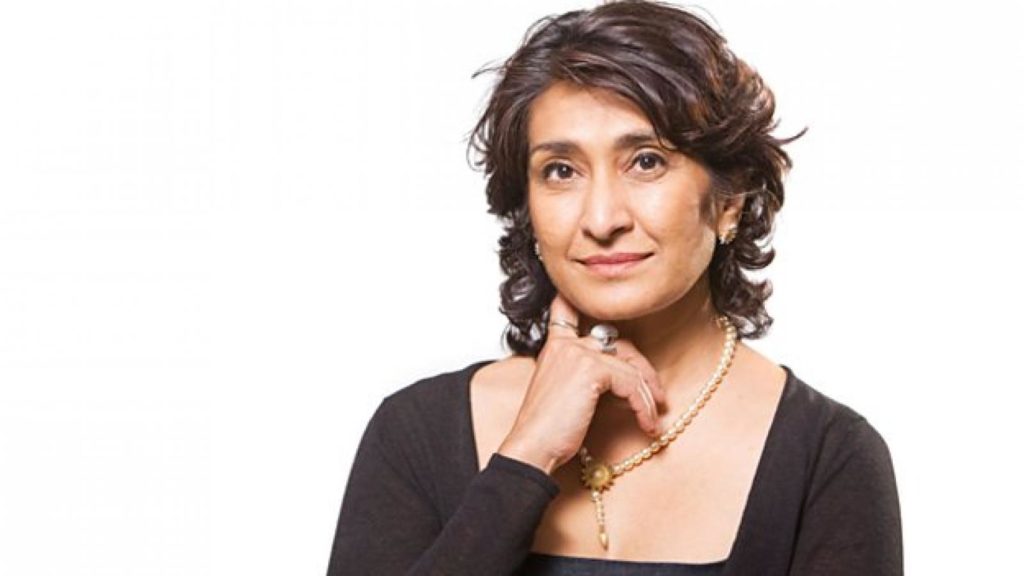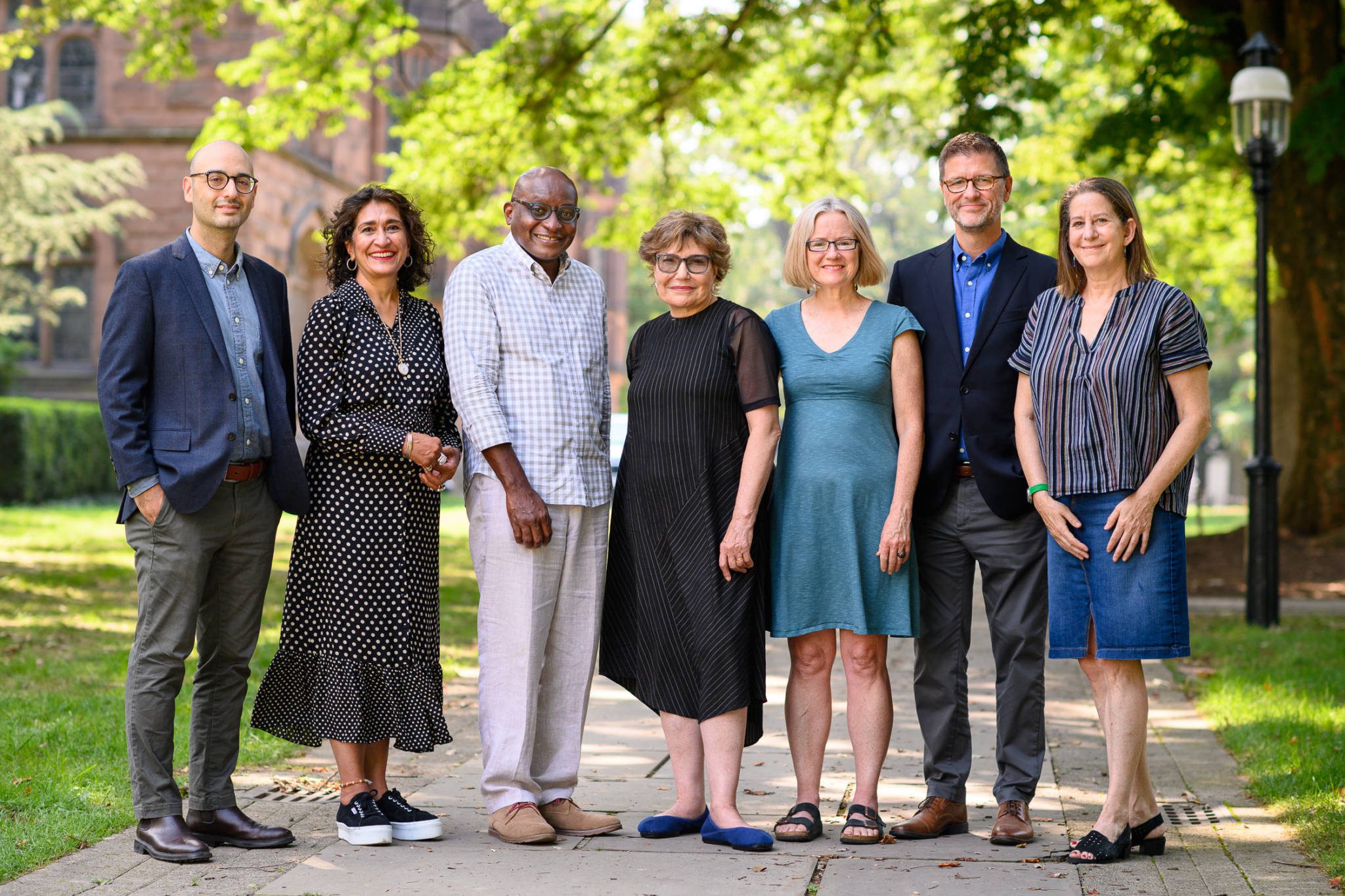By Ruby Marie Marsh ’17
The Humanities Council is welcoming 32 new faculty and fellows and four executive committee members for the 2021–22 academic year, along with six interdisciplinary program directors appointed by the Dean of the Faculty to terms beginning July 1, 2021.
The newcomers will delve into the resilience of young people, ways of keeping leaders accountable, digitized miracle stories, and the history of the concept of space.
Old Dominion Research Professors
Old Dominion Professors are full professors in the humanities and humanistic social sciences, appointed for a one-year term that extends what would have been a semester of regular sabbatical leave. Beyond receiving additional research time, Old Dominion Professors contribute to the Council’s programs and events, and engage colleagues and students from across the University in sustained discussions about their work. They will also serve as Faculty Fellows in the Society of Fellows in the Liberal Arts. Wendy Belcher (Comparative Literature, African American Studies) will progress on her project “Ladder of Heaven: The Miracles of the Virgin Mary in Ethiopian Literature and Art.” Judith Hamera (Dance, American Studies) will expand “Los Angeles Live Art and Critical Pluralist Imaginaries, 1989–2000.”
Postdoctoral Research Associate
Appointed in the Humanities Council as an Emerging Voices Fellow of the American Council of Learned Societies (ACLS), Dexter Thomas, a scholar of international music and youth cultures, will bring the humanities to the broader public. He will develop podcasts to highlight the innovations and collaborations fostered by the Humanities Council.
Linguistics Faculty
Two newcomers will serve as Lecturers in the Humanities Council and Program in Linguistics. Amelia Becker focuses on the phonetics and phonology of American Sign Language, with attention to how language use and substance shape mental grammars. Daniel Maier will teach American Sign Language, drawing on his experience in primary and secondary education.
Visiting Scholars and Practitioners
For the Program in Journalism this fall, Terence Samuel, managing editor for news at National Public Radio, will teach “Politics and the Media: The Art of the Political Profile.” The class will delve into how Americans consume media coverage, navigate current affairs, and gain power. Helen Thorpe, who has won awards for her narrative non-fiction, will dedicate her course “Creative Non-Fiction” to portraying social inequality.
Come spring, Michael Calderone, senior editor at Vanity Fair’s news site Hive, will teach about how journalists hold the powerful accountable in government, business, and entertainment. Foreign correspondent Barbara Demick, who served as bureau chief of The Los Angeles Times in New York, Beijing, and Seoul, will instruct students on covering repressive regimes amid rising authoritarianism. BBC World Service Newshour anchor Razia Iqbal will teach an international news seminar that explores how a single event—9/11—caused a paradigm shift in both global affairs and journalism, and how it continues to challenge the fourth estate.

Three Long-Term Visiting Fellows will join the University community in the fall. In the Department of English, Columbia University Professor Branka Arsić will teach “Literary and Cultural Theory: Ecological Poetics of the 19th C. Americas.” This course will examine perspectives on life and matter from writers like Thomas Jefferson, Henry David Thoreau, Walt Whitman, and Herman Melville. Graduate Center of the City University of New York (CUNY) Professor Miranda Fricker will co-teach “Moral Philosophy” for the Department of Philosophy. Fricker has been working on blame, forgiveness, and an idea she calls ethical freedom. For the Department of German, literary theorist Carlos Spoerhase will co-teach a class about the implications of changing the sizes and proportions of aesthetic artifacts.
In the spring, as a Long-Term Visiting Fellow in the Department of English, Duke University Professor Robyn Wiegman will teach “Autotheory.” The term blends “autobiography” with the philosophical traditions that humanities scholars often label “theory.”
The fall will feature five Short-Term Visiting Fellows. Patrick Chamoiseau, a French author from Martinique, will bring his versatile work—spanning novels, essays, children’s books, screenplays, theatre, and comics—to the Department of French and Italian. Northwestern University Professor José Medina will speak on epistemic oppression and activism, as well as the role of emotions in combating injustice, for the Department of Philosophy. For the Department of Religion and Program in Judaic Studies, Oxford University Professor Hindy Najman will apply her expertise on the Hebrew Bible. Architect, illustrator, writer, and teacher Matteo Pericoli will contribute to the Department of French and Italian. He founded the Laboratory of Literary Architecture, a cross-disciplinary exploration of literature as architecture. University of Texas at Austin Associate Professor Miriam Schoenfeld will speak on disagreement, accuracy, and evidence about one’s own rationality for the Department of Philosophy.
Among spring Short-Term Visiting Fellows, renowned French actress Audrey Bonnet will enrich the Department of French and Italian. French National Centre for Scientific Research Professor Vincenzo De Risi will work on his history about space, as an object of geometry and scientific study, within the Department of Philosophy. At the Lewis Center for the Arts, culture critic Soraya Nadia McDonald will draw on her writing about popular taste, fashion, the arts, and literature. University of Toronto Professor Amira Mittermaier will serve the Department of Religion with research on modern Islam in Egypt.
The Fund for Canadian Studies will host, as Pathy Distinguished Visitor, Olga Ulturgasheva. Harnessing ethnography, she specializes in youth resilience, climate change, and adaptation patterns of humans in different environments.
Members of the Society of Fellows in the Liberal Arts
The Society of Fellows in the Liberal Arts is welcoming a fresh cohort of postdoctoral fellows, also appointed as lecturers in the Humanities Council and in host departments. Matthew Delvaux, affiliated with the Department of History and the Program in Humanistic Studies, will research his first book, which concerns Viking captives trafficked into the slave markets of Central Asia. He will teach in the Western Humanities Sequence, as well as offer a course on diversity and difference in the early Middle Ages.
Historian of medicine Ayah Nuriddin will extend her dissertation into a book tentatively titled, “Seed and Soil: Black Eugenic Thought in the Nineteenth and Twentieth Centuries.” The project will examine how African Americans have interpreted scientific findings in advocating for equality. She will teach “Beyond Tuskegee: Race and Human Subjects Research in US History” in the Department of African American Studies.
Lecturing for the Department of Spanish and Portuguese, Nicolás Sánchez-Rodríguez will work on his book about why paper technologies for representing value flourished in nineteenth-century Colombia. He will teach “Fleshing the Soul: Money and Matter in Spanish America.”
Appointed in the Department of Astrophysical Sciences, Daniel Tamayo is studying the formation and evolution of planetary systems, in reference to planets outside our solar system. His investigation encompasses whether orbits alter over time.
Humanities Council Executive Committee
The Humanities Council added four members to its Executive Committee: Chair Esther Schor (English), Martin Kern (East Asian Studies), Kinohi Nishikawa (English, African American Studies), and Kim Lane Scheppele (Sociology, School of Public and International Affairs, The University Center for Human Values).
Members of the Council’s Executive Committee come from across the humanities departments and meet on a monthly basis to select Visiting Fellows, Research Professors, grantees of the David A. Gardner ’69 Magic Fund, Behrman Professors, and the Belknap Visitor in the Humanities. In addition to these specific tasks, the committee deliberates on interdisciplinary research and teaching proposals and thinks about the humanities as they intersect with the arts, social sciences, and natural sciences more broadly. Past discussions have focused on the library, admissions, graduate programs, emerging fields, and faculty diversity.
Humanities Program Directors
The Dean of the Faculty appointed six new program directors, whose terms began July 1, 2021.
Devin Fore (German) will chair the Committee for Film Studies. It promotes interdisciplinary appreciation of cinema, including by bringing filmmakers and film scholars to campus, as well as publicizing screenings, courses, and discussions. He will also co-direct the Program in Media and Modernity, which gives special attention to the interplay between culture and technology.
Effie Rentzou (Department of French and Italian) will direct the Program in European Cultural Studies. It investigates how European societies, past and present, order reality, make sense of life, and communicate meaning through various channels.
Esther Schor (English) will direct the Program in Humanistic Studies. It supports interdisciplinary approaches among students of any concentration, including by offering Western, East Asian, and Near Eastern Humanities Sequences.
Emmanuel Bourbouhakis (Classics) will serve as Acting Director for the Program in the Ancient World, and Beatrice Kitzinger (Art and Archaeology) for the Program in Medieval Studies. Carolyn Yerkes (Art and Archaeology) will be Acting Chair for the Committee on Renaissance and Early Modern Studies.
Campus Partnerships
The Council provides substantial support for the following visitors across campus.
Princeton Mellon Fellow in Architecture, Urbanism & the Humanities Dean Chahim (Architecture) argues in his research that Mexico City engineers, under political pressure, have transformed flooding into a form of environmental suffering that disproportionately affects the urban poor. He will teach “Design Justice, Engineering, and the Urban Environment” in the spring.
Within the Princeton Institute for International and Regional Studies (PIIRS), the Program in Translation and Intercultural Communication appointed two Translators in Residence, with funding from the Humanities Council and the Lewis Center for the Arts. Sean Gasper Bye will bring his expertise in translating Polish literature, including Ellis Island: A People’s History by Małgorzata Szejnert. He hopes to explore international reportage while at the University. A translator from Chinese, Jeremy Tiang has written plays and novels including State of Emergency, which won the Singapore Literature Prize in 2018.
Within Firestone Library’s Special Collections, Associate Professional Specialist Mark Pyzyk is serving as Database Coordinator for the Framing the Late Antique and early Medieval Economy (FLAME) Project, hosted by the Princeton University Numismatic Collection and the Committee for the Study of Late Antiquity. He focuses on the production of coin dies and the relationship of minting to state power.
















